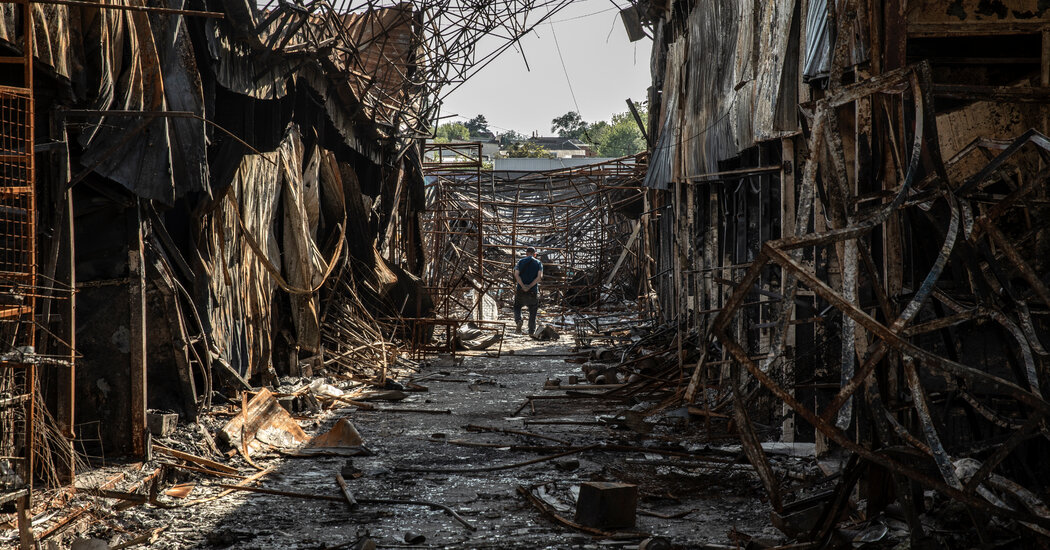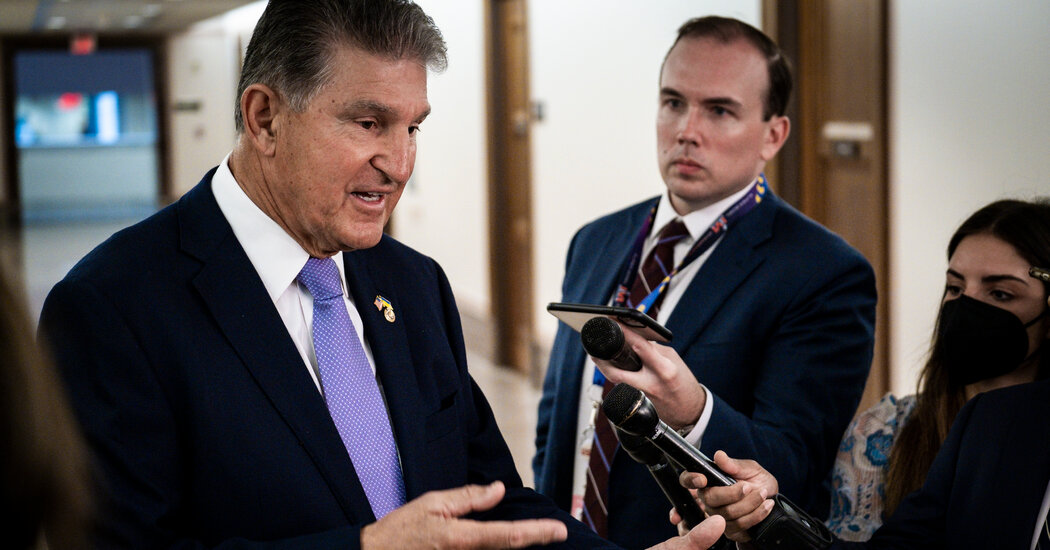
KHARKIV — Air raid sirens wail daily and the steady rumble of artillery can still be heard in the distance, but Ukrainian forces this month pushed Russian troops out of the eastern city of Kharkiv and beyond striking distance.
After sheltering underground since February, residents of the city, Ukraine’s second-most populous, and its surrounding villages have finally been able to venture out for the first time and return to their neighborhoods to assess the damage the Russians left behind. The discoveries have been grisly.
Yuri Emets, 56, returned last week to find his home in the once bucolic village of Vilkhivka had been hit by several shells, blasting away most of the top floor. The bodies of seven Ukrainian soldiers had been dumped behind his garden shed. It appeared they had been hiding in his basement vegetable cellar when they were discovered by Russian forces and killed.
“My eldest son was in the military,” Mr. Emets said over the thump of outgoing Ukrainian artillery fire as smoke rose from a hilltop on the horizon. “Those guys who died here are like my sons, too. I won’t be able to sleep tonight.”
He and his wife and children had fled the village two weeks into the war, once the fighting became too intense. The Russians had apparently used his home as a firing position, parking a tank in his driveway.
His garden was littered with spent shell casings, shell holes and other detritus of battle. Burned military vehicles blocked the main road. Bodies lay scattered around the town, including the bloated corpse of a Russian soldier on the grass outside the charred skeleton of a school.
“I feel like I never lived in this place after seeing what happened here,” Mr. Emets said.
In the town of Velyka Danylivka, a truck driver, Ivan Petrovich Voytenko, 69, said he had almost collapsed in shock when he found his home had been hit by several shells. “It’s a good thing the walls are still here, so maybe we can fix it,” he said.
He and his family of six fled on Feb. 24, the day Russia invaded Ukraine, worried because the house was close to a Ukrainian military base.
The family sought safety at Mr. Voytenko’s sister’s house several miles away, but that proved no safer. They were sheltering in the basement when her home took a direct hit from a rocket.
“When we got hit, it was a panic and all the children and women were screaming,” Mr. Voytenko said. “We managed to get them out.”
Now, relative calm has returned to Kharkiv. Some restaurants and cafes are reopening, and bus service has resumed. But battles are still raging just a few miles to the north, where Russian forces are dug into defensive positions close to their border.
In the village of Pytomnyk, a Ukrainian mortar team traded fire with Russian forces just two miles away last Friday, trying to push them farther back. On Sunday, Ukrainian volunteers bearing relief aid raced their car into Prudyanka, just a few miles from the Russian border, where a few families have remained. Ukrainian soldiers urged them not to stay long, and within minutes, they moved on.
Over the weekend, the Ukrainian military scoured the remains of bombed-out factories and warehouses occupied until recently by the Russians in the village of Tsyrkuny, northeast of Kharkiv, while firefighters battled a blaze from the latest Russian bombardment in Derhachi, to the northwest.
In Saltivka, the hardest-hit northern neighborhood of Kharkiv, returning residents wandered through apartment blocks pockmarked with blackened shell holes from artillery strikes. The streets were covered with metal scraps, burned-out vehicles and barricades. Window frames all around the city were boarded up or left as gaping holes of shattered glass. Hundreds of people lined up daily around town, hoping to receive food being distributed by volunteers.
The markets in Saltivka were heavily hit, leaving many stalls reduced to scorched and twisted strands of metal. But some parts have reopened, including flower stands, where one resident, Olga Pavlienko, who was out shopping with her sister, bought armloads of brightly colored plants last week.
Russia-Ukraine War: Key Developments
“These flowers, they heal our souls,” she said. “We have suffered a lot and I pray for peace as soon as possible.”
Others in the city were still too afraid to venture out, awaiting official word that it was safe. Inside a crowded subway station, hundreds of people remain sheltered, some wrapped in blankets on the platform.
At the train station, still others were returning home or being reunited. Among them was Lesya Bondaletov, who arrived from western Ukraine and was greeted by her husband, Anatoliy, 52, a Ukrainian soldier. They had been apart since the start of the war. He had been guarding an administration building in Kharkiv early in the war when it was struck by two Russian missiles, killing more than two dozen people.
But even as life tentatively re-establishes itself, Kharkiv remains under curfew. Every night it arrives as a reminder of the war: Life recedes once again, and the city is blacked out to protect it from Russian shelling. The only glow comes from the luminescence of rockets arcing across the sky.




